43 conversion factors worksheet with answers
Make the following conversions using factor-label method: Convert 50 gallons to liters 50 gal 4 qts 1.0 L = 189 L. 1 gal 1.057 qts. Convert 600 milligrams into grams. How many feet is 500 inches (express answer as a decimal)? How many grams are in 45 ounces? Convert 2 liters into milliliters? Convert 40 cubic feet to cubic centimeters
denominator of the conversion factor are equal, multiplying by the conversion factor is like multiplying by 1 and thus does not change the value of the original quantity. Use the table of English to Metric equivalents as needed. All answers should be in significant figures! A) Problems with a single conversion factor. 1. How many cm are in 18.9 ...
As long as the English system continues to be used, conversions between the two systems will be necessary. Use the conversion factors below to complete the problems that follow. Length Volume Mass 2.54 centimeter = 1 inch 1 liter = 1.06 quarts 1 kilogram = 2.20 pounds 1 meter = 3.28 feet 3.79 liters = 1 gallon 1 meter = 1.094 yards
Conversion factors worksheet with answers
Mole to Grams, Grams to Moles Conversions Worksheet What are the molecular weights of the following compounds? (all masses must be to nearest hundredth) 1) NaOH 2) H 3 PO 4 3) H 2 O 4) Mn 2 Se 7 5) MgCl 2 6) (NH 4) 2 SO 4 There are three definitions (equalities) of mole. They are: 1 mole = 6.02 x 1023 particles
Chemistry conversion worksheet answer sheet. The worksheets can be made in html or pdf format both are easy to print. Trigger some interesting practice along the way with this huge compilation of metric unit conversion worksheets comprising a conversion factors cheat sheet and exercises to convert metric units of length mass or weight and capacity.
Learning metric units have a whole lot of advantages, it's simple as it's units scale to the power of 10. Trigger some interesting practice along the way with this huge compilation of metric unit conversion worksheets comprising a conversion factors cheat sheet, and exercises to convert metric units of length, mass or weight, and capacity.
Conversion factors worksheet with answers.
Some conversions can be done with one step; Measuring worksheet 1 answer key worksheets for all from measuring units worksheet answers, source: 40 f 40 32 8 8 x 59 44 c a. The most common way to adjust recipes is to use the conversion factor method. An answer key has been provided for teacher reference.
This measurement worksheet is a great handout for students containing general conversion factors for length, weight, area, and speed. General Conversion Quiz Worksheets This Measurement Worksheet is great for practicing converting length, weight, area, and speed. The measurement worksheet will produce sixteen conversion problems per worksheet.
Below are some conversion factors used in the SI System, and which we will use in this class. kilo- = 1000 centi- = 1/100 milli- = 1/1000 Other Conversions 1 kg = 1000 g 1000 mg = 1 g 1 mL = 1 cm3 1 km = 1000 m 100 cm = 1 m 1000 mm = 1 m 1 L = 1 dm3 1 kL = 1000 L 1000 mL = 1 L 1 cm = 10 mm
Not to worry! Search thousands of other internships, scholarships and other student programs in 120+ countries. Search Or if you are wondering, who we are:...
Worksheet CHM 130 Conversion Practice Problems For conversions within the metric system, you must memorize the conversion (for example: 1000 mL = 1 L, or 1000 g = 1 kg should be memorized) Remember that metric conversions are exact ratios and thus will not limit your significant digits for the answer. First start with what you are given. Figure
FACTORS. A factor is a number that divides into another number with no remainder. In other words every number is divisible by each of its factors. 1 is a factor of every whole number, because every integer is divisible by one. Examples. 3 and 7 are both factors of 21 because 3 x 7 = 21. 10 and 6 are both factors of 60 because 10 x 6 = 60
The conversion tables on page 3 say that 1 =3 . For square units, we have to use this conversion twice so that “ft2" cancels with “ft∙ft”. 2 18 22 2 2 18 1 1 18 1 3 3 (3)(3) ft yd yd ft yd yd ft ft Another way to obtain the same result is to create a …
A large collection of GCF worksheets is meticulously drafted for students in grade 5 through grade 8. GCF is also known as 'greatest common divisor'(GCD), 'highest common factor'(HCF), 'greatest common measure'(GCM) or 'highest common divisor'(HCD).
Students will the correct conversion factors to use when solving problems. Determine the degree of precision required by the situation. Students round their answers to the nearest hundredth when appropriate. Solve problem using appropriate quantitative procedures and verify that the results are reasonable. Students will label their answers with the
USING CONVERSION FACTORS WORKSHEET 1. Elena wants to buy 2 gallons of milk but can only find quart containers for sale. How many quarts does she need ? 2. A container of a powdered fruit drink mix has a mass of 1.25 kilograms. What is that mass in milligrams ? 3. While working out, Alima adds 11.35 kilograms to the machine.
This Percent Worksheet is great for practicing converting between percents, decimals, and fractions. You may select six different types of percentage conversion problems with three different types of numbers to convert. This percent worksheet will produce 30 or 36 problems per page depending on your selection.
All factor label problems involve the following basic approach: # what you want to find = what you know (given) x th fr AKA conversion factor Example: How many feet are in 56 inches? 4.6667 ft = 4.7 ft The fraction that has been highlighted is known as a CONVERSION FACTOR The CONVERSION FACTOR is derived from the relationship between the unit ...
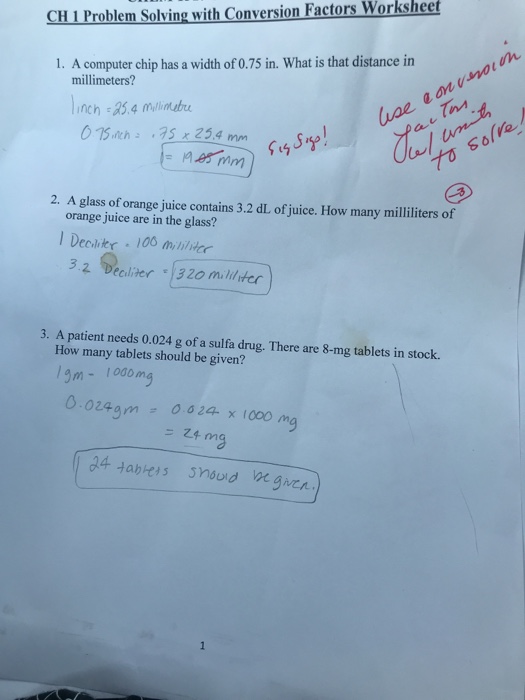

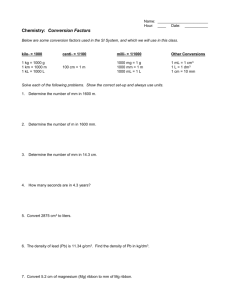
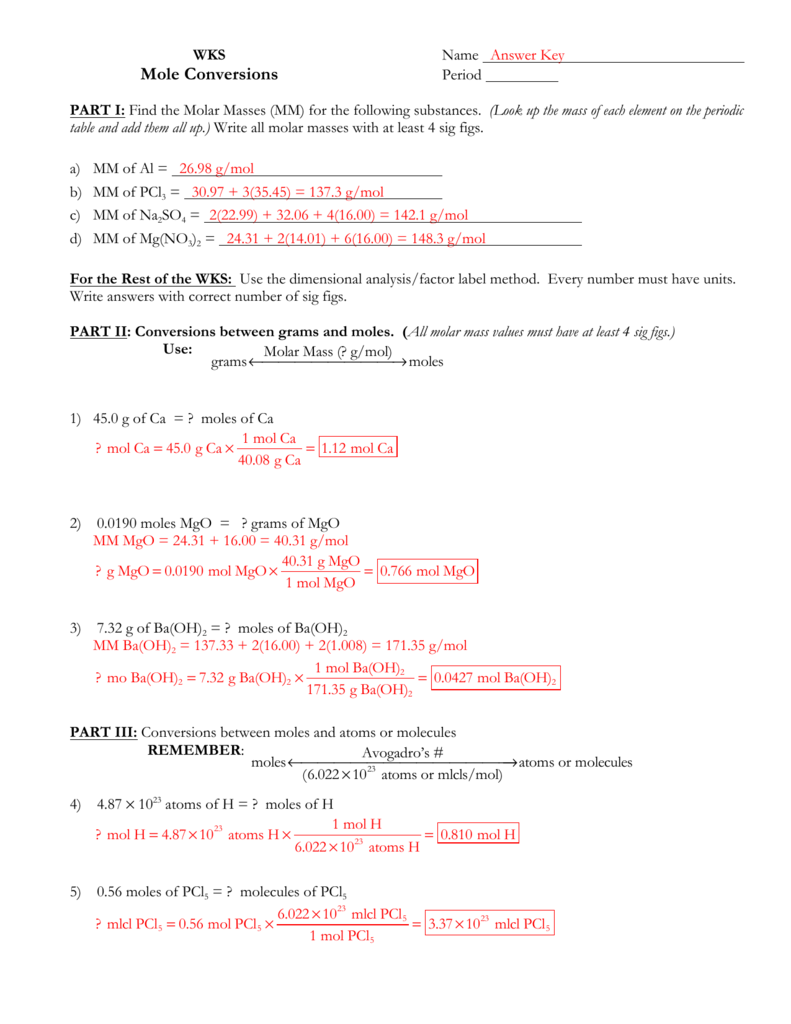
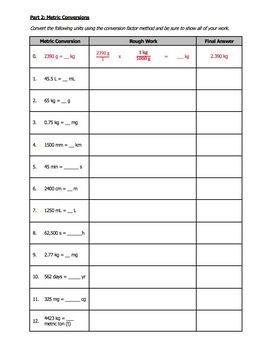

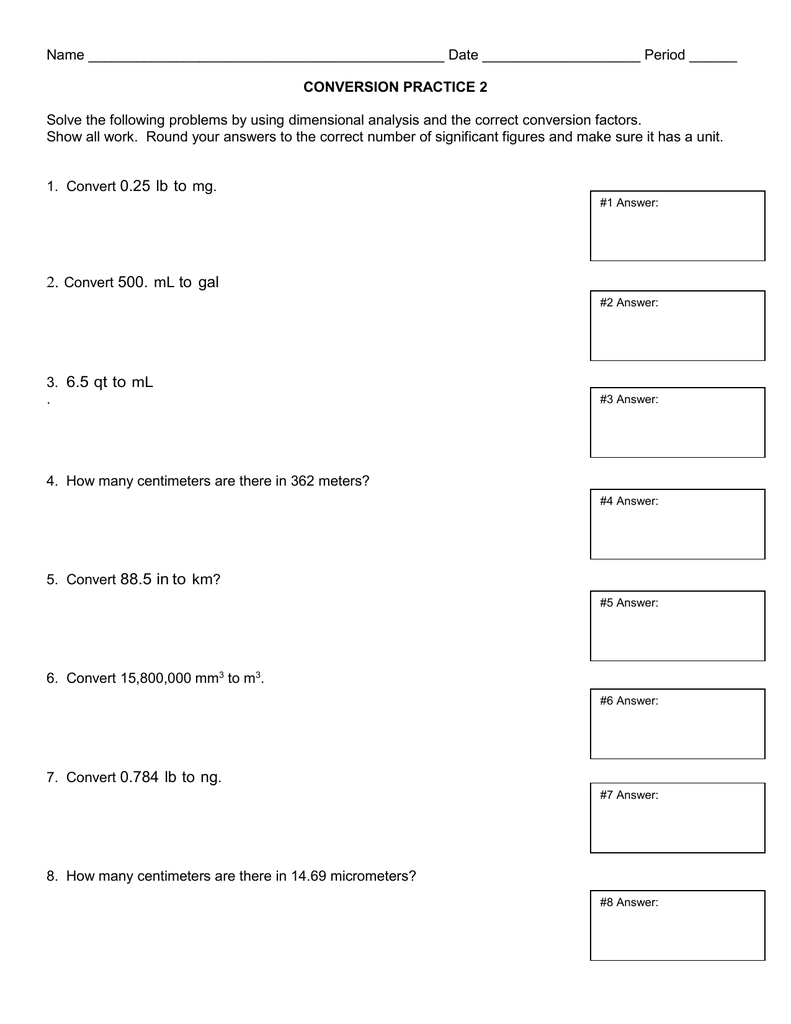
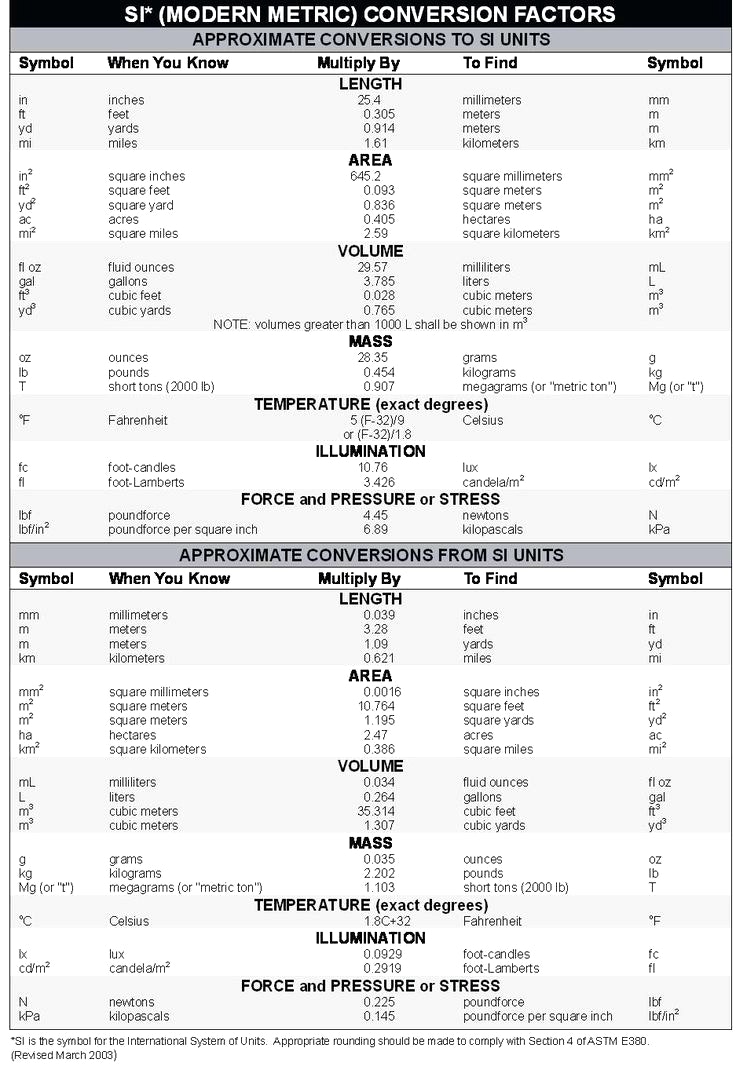
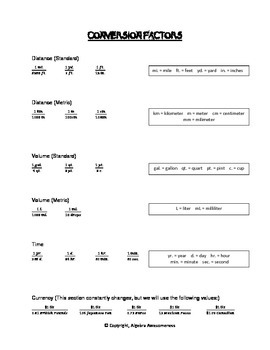

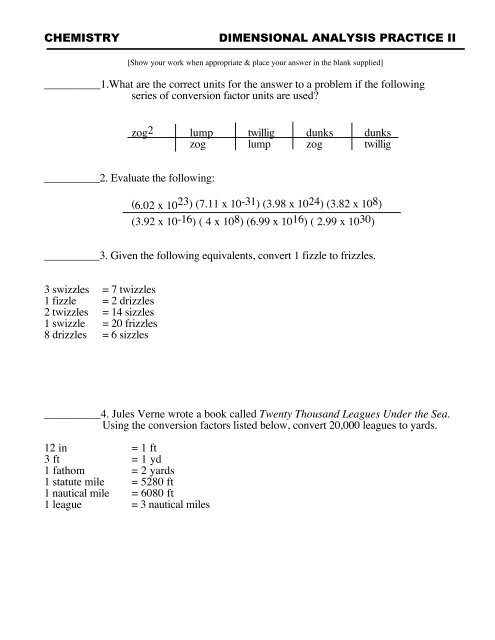

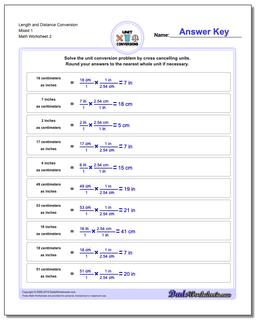


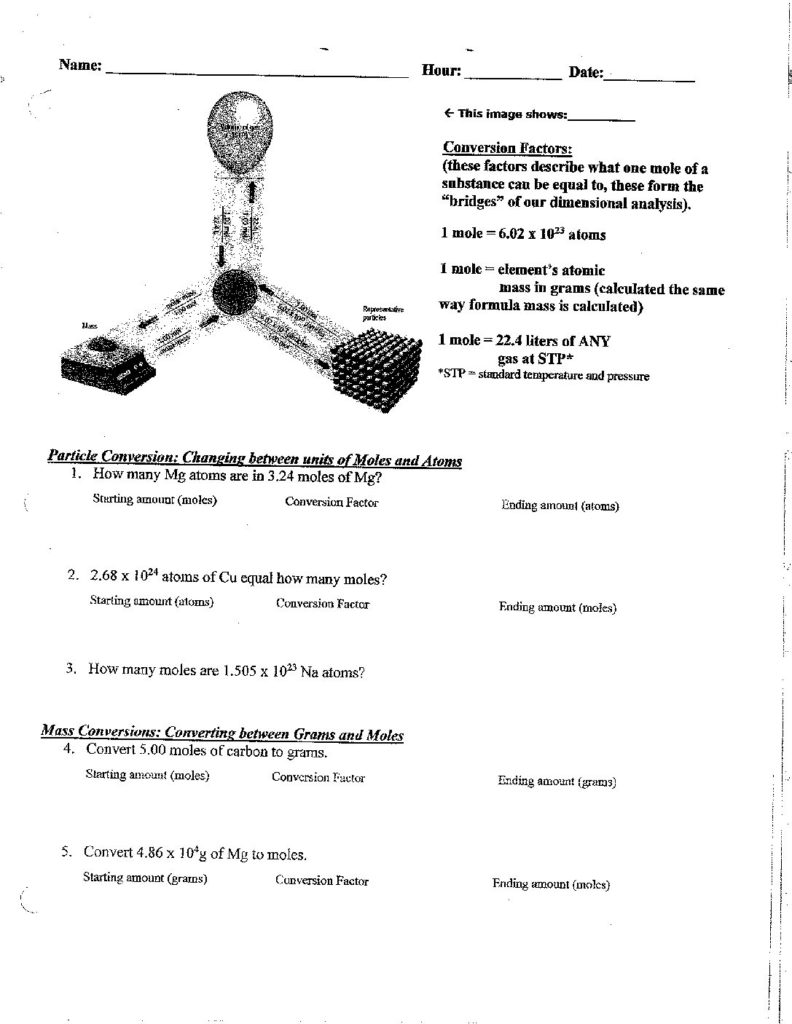

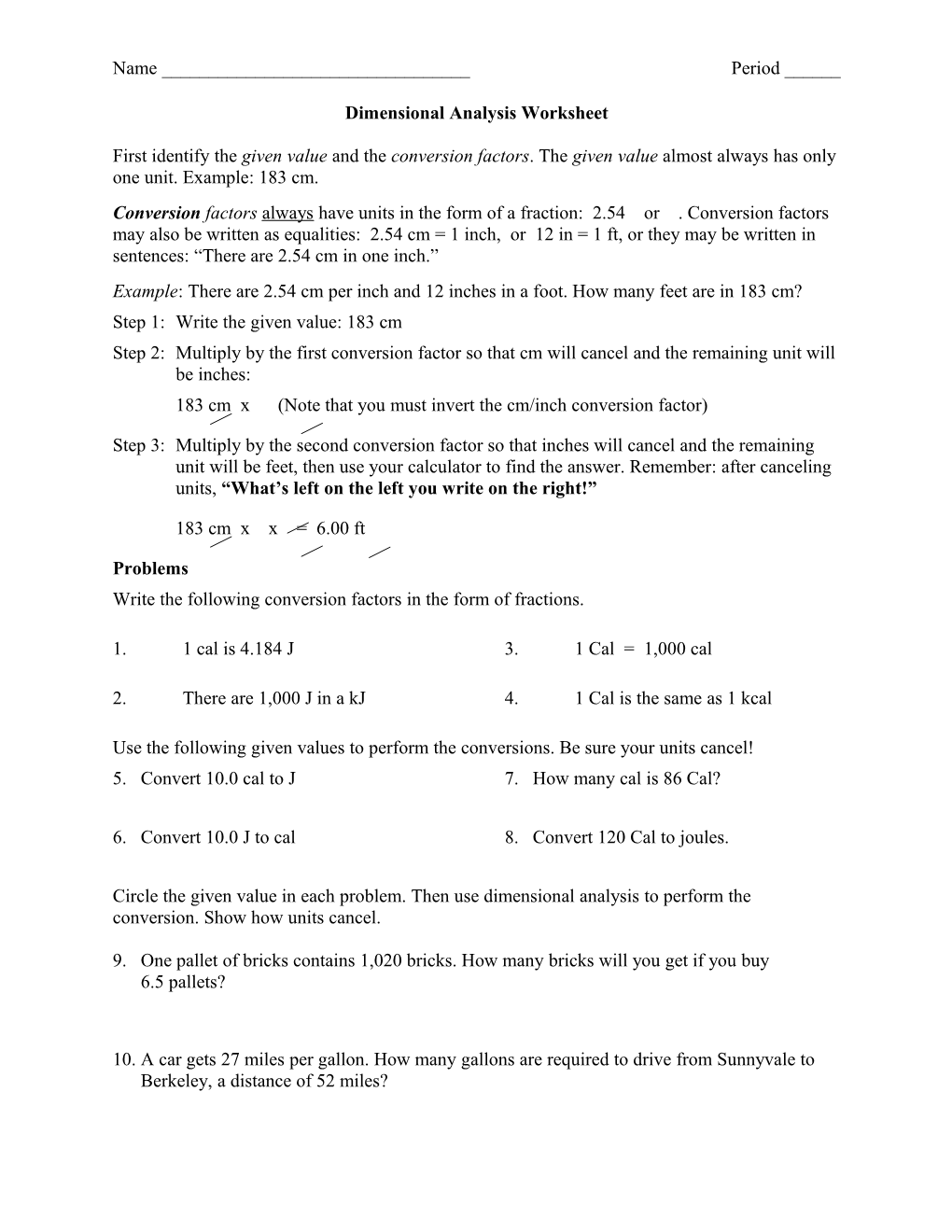
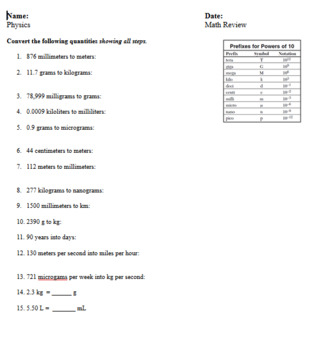

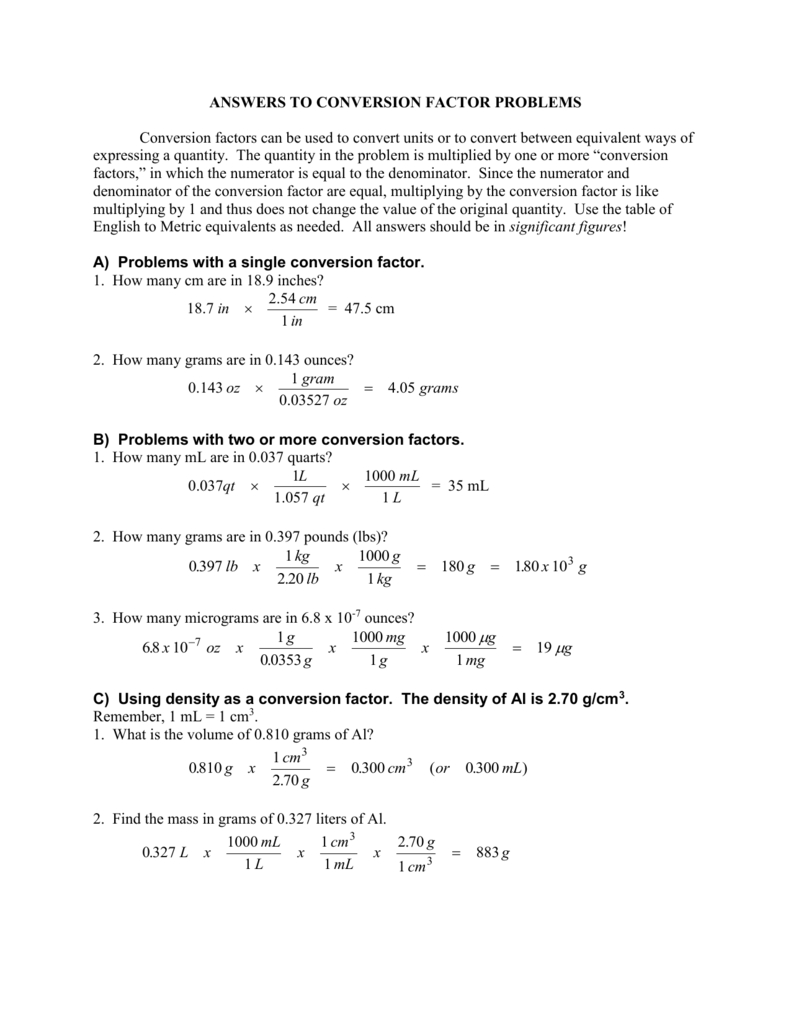


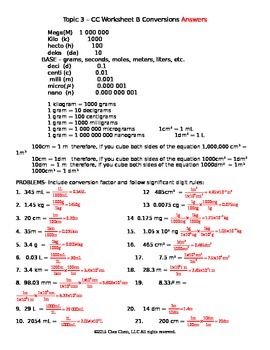
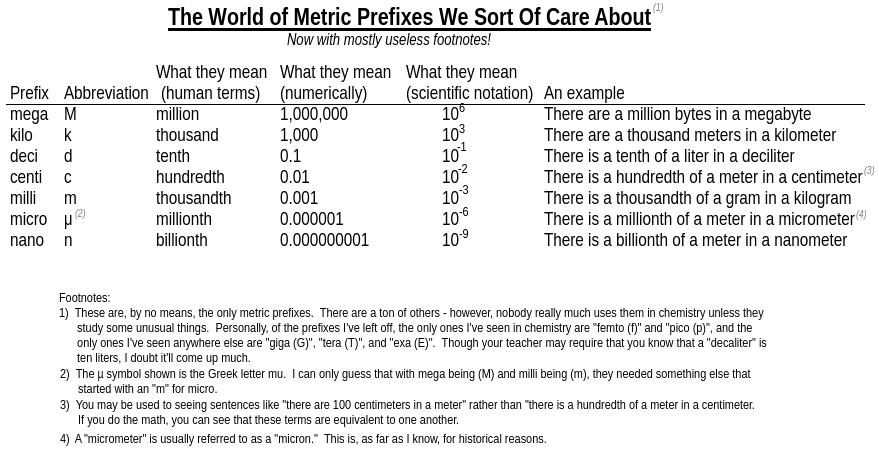
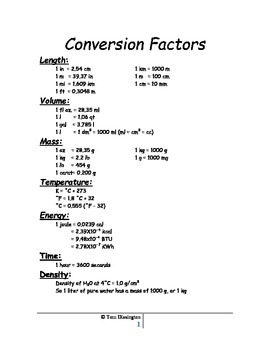



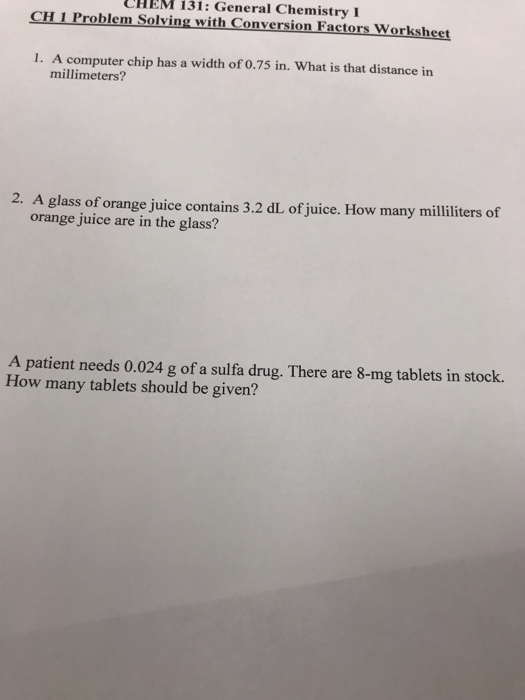

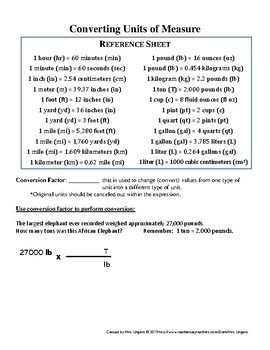


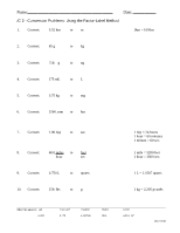
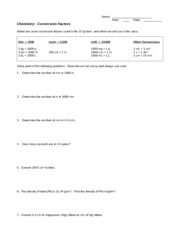
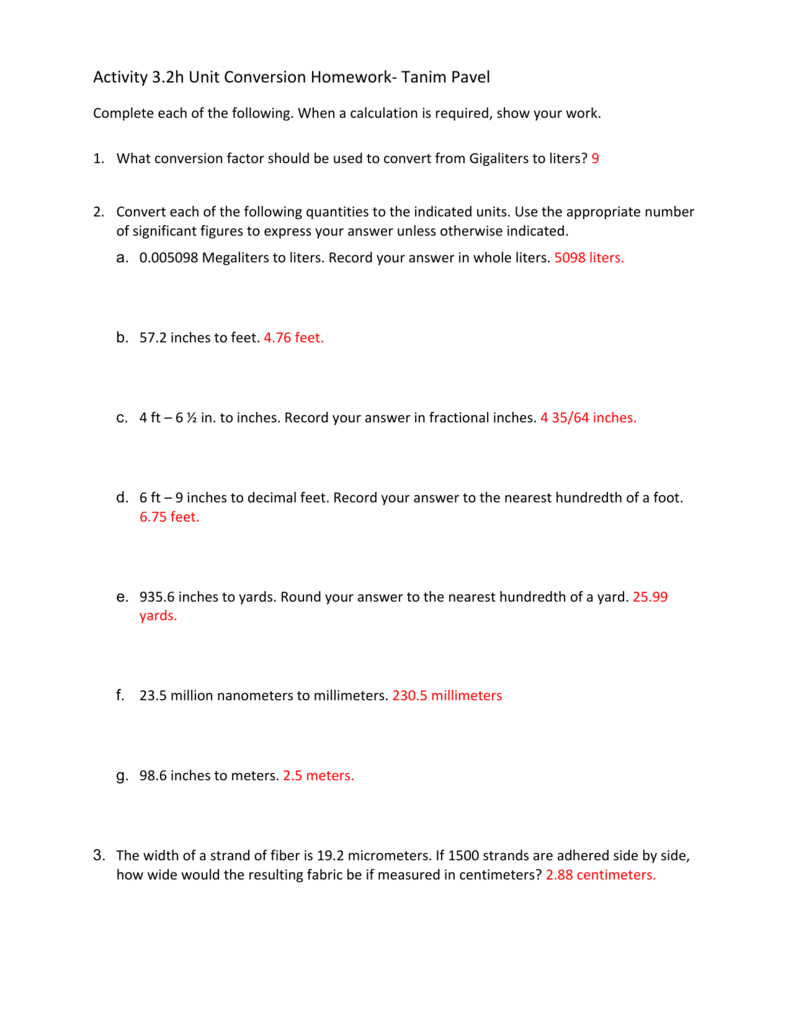
0 Response to "43 conversion factors worksheet with answers"
Post a Comment